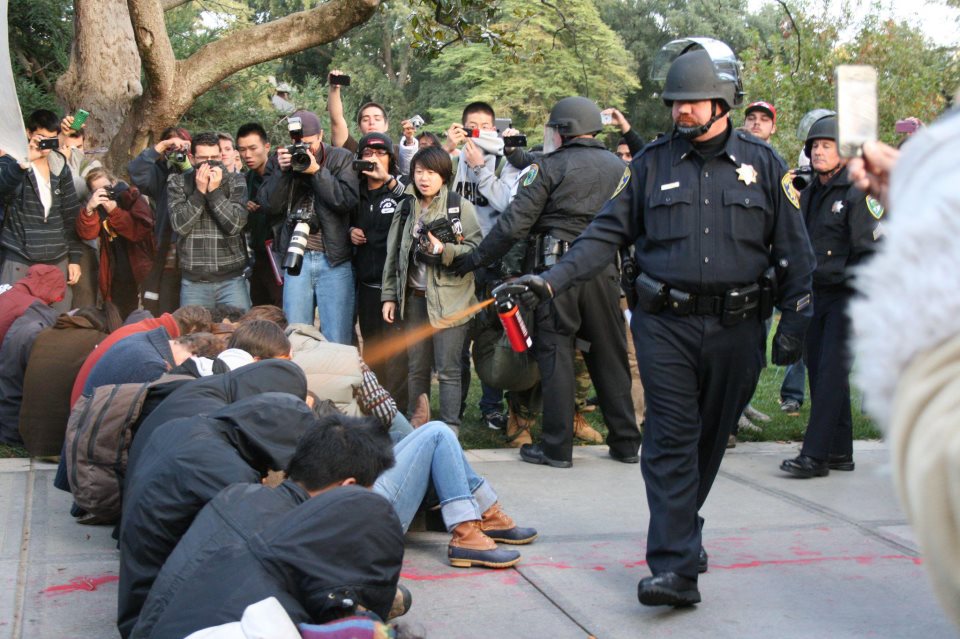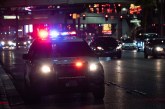 Agreement Expected to Be Publicly Released in Two Weeks –
Agreement Expected to Be Publicly Released in Two Weeks –
Steve Montiel, the Media Relations Director for the UC Office of the President, told the Vanguard that a federal court is expected to certify the agreement in roughly two weeks. At that time, the details will be released to the public.
“If the UC Regents approve the proposed agreement at their September meeting, the parties will return to federal court in Sacramento to seek approval of terms of the settlement,” he said.
Under the rules of mediation and court settlement, all parties are obligated to maintain strict confidentiality until the agreement has been approved and filed with the court, Mr. Montiel continued.
“The terms of any settlement reached will be available to the press with the filing, and the parties will be able to discuss the matter publicly at that time,” he said.
The lawsuit, which preceded the findings of the Kroll and Reynoso reports last spring, sought to determine why the university violated the demonstrators’ state and federal constitutional rights, and seeks to result in better policies that will prevent repetition of such response to a non-violent protest.
The lawsuit charges that administration officials and the campus police department failed to properly train and supervise officers, resulting in a series of constitutional violations against the demonstrators. The plaintiffs are represented by the ACLU of Northern California and cooperating attorneys, including Sacramento civil rights attorney Mark Merin.
“We filed a lawsuit because we want to make sure that nothing like this ever happens again,” ACLU attorney Michael Risher told the Vanguard back in February.
One of the key questions that still plague this incident is the question as to what the legal authority for the university’s police action was. The university apparently guarded this even from the Kroll investigators, citing attorney-client privilege.
For the first time, however, the Sacramento Bee reports that it has obtained internal emails that shed light on the process by which the university determined how to handle the tent-clearing operation – a process they debated late into the evening the night before.
The Bee reports, for instance, that Senior Campus Counsel Michael Sweeney actually sought input from Yolo County’s Chief Deputy DA Jonathan Raven.
The Bee reports that Mr. Sweeney wrote: “If he/she fails to disperse after a dispersal order, he/she is in violation of PC 409.”
He added: I ran this analysis by the DA’s office (Jonathan Raven), and he stated that my analysis was ‘technically correct,’ although he wasn’t particularly impressed by the crime.”
The Bee reports that Lt. John Pike would write in his report: “Campus legal counsel acknowledged that there was sure legal standing to conduct the operation during the afternoon hours, but there was greater legal standing to conduct the operation in the early morning hours.”
The Bee describes that Lt. Carmichael and campus counsel removed the language in the material that they gave to Kroll due to attorney-client privilege and that the Kroll report was never given the information by the campus counsel.
What we now know is that UC Davis did seek legal advice from the DA, but that the DA was not overwhelmed with the crime in this case, probably because, by using a failure to disperse as the pretext for the arrest, it assumes there was no underlying crime to begin with.
It may shed insight into why the DA’s office – aside from the original bad publicity of the pepper spray act itself – opted not to charge the protesters in this case.
The legal authority to act in the first place is still highly in question, despite the campus’ claims to the contrary.
The DA’s office has still not made a determination as to whether Lt. John Pike or the other involved officers, Officer Alexander Lee and Lt. Barry Swartwood, will face criminal charges.
—David M. Greenwald reporting






I understand that the DA’s office has still not made a determination as to whether the Vanguard has criminal liability in this matter.
J.R…..thanks for the laugh
I guess I missed the joke. Reading the Bee, this has already cost the university more than $1 million. But I guess they really nipped this in the bud Rusty? Yeah, I remember your comment from last year. Funny thing.
This confirms one of my concerns of this incident — that the dispersal order, which should have been in response to something significant, in and of itself, when ignored, became the crime violated. The protestors as a whole handled this morally by refusing to disperse from a ludicrous response to a minor violation. Similar to a soldier ignoring an unlawful order. They called the university on its s**t.
Alan: That’s my read as well. And of course the failure to disperse order could be challenged in court.
I would be amused if they could charge Pike under this:
[quote]403. Every person who, without authority of law, willfully disturbs or breaks up any assembly or meeting that is not unlawful in its
character, other than an assembly or meeting referred to in Section
302 of the Penal Code or Section 18340 of the Elections Code, is
guilty of a misdemeanor.[/quote]
So did Pike have the authority of law to break up the assembly?
Siegel, the alter ego
“I guess I missed the joke.”
No surprise there…….
Also from Siegel, the alter ego
“But I guess they really nipped this in the bud Rusty? Yeah, I remember your comment from last year.”
LOL, yeah right